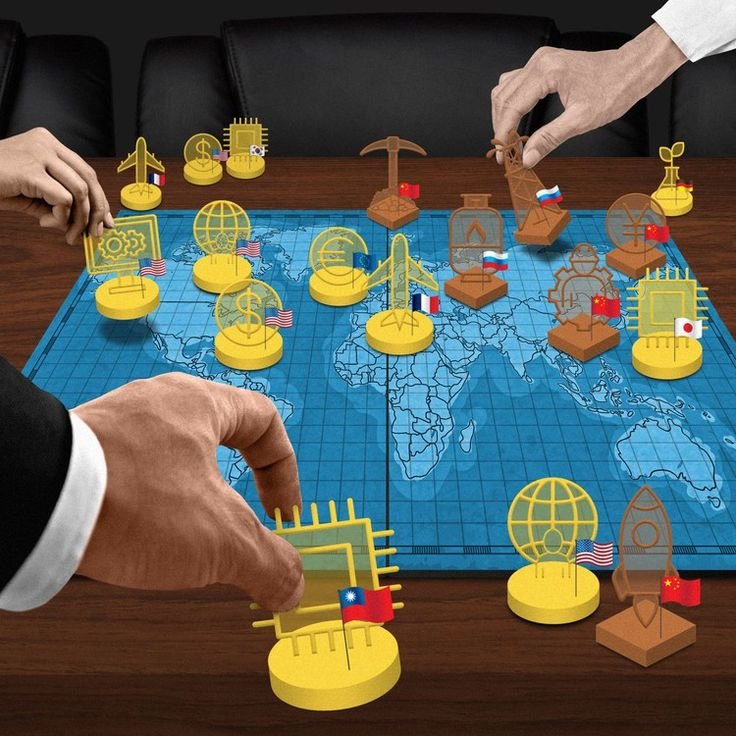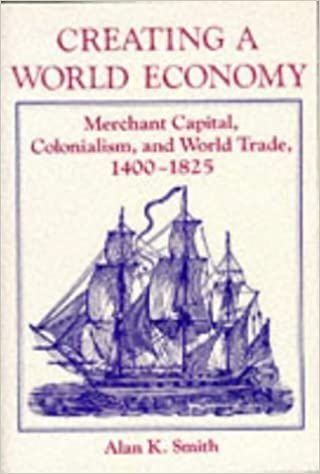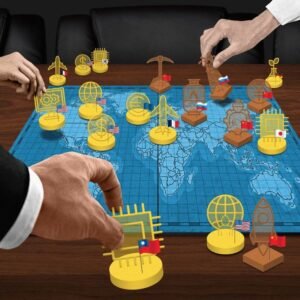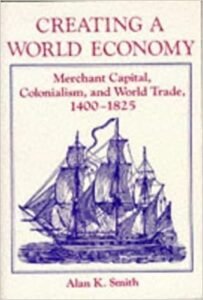From War Rooms to Summits: FishersFind Analyzes Global Power Plays
The landscape of global power is continuously shifting, marked by strategic maneuvering from political leaders, multinational corporations, and international organizations. From covert operations in war rooms to high-profile diplomatic summits, these power plays influence the future of nations, economies, and societies. FishersFind offers an in-depth analysis of the latest global power plays, focusing on how countries and organizations are positioning themselves on the world stage in an era defined by geopolitical tension and economic uncertainty.
The Role of Geopolitics in Global Power Plays
Geopolitics has long been a driving force behind global power dynamics, and it remains a critical component of contemporary international relations. At the heart of these power plays lies the strategic positioning of countries to safeguard their interests and expand their influence. Whether it’s a military build-up on a border or the pursuit of strategic alliances, geopolitics often dictates the decisions made in both government chambers and corporate boardrooms.
In recent years, tensions between major powers like the United States, China, and Russia have intensified, reflecting deeper underlying political, military, and economic rivalries. The ongoing conflict in Ukraine, for example, has shifted the global balance, with NATO countries supporting Ukraine while Russia asserts its territorial claims. This has brought back Cold War-era power struggles, but with new complexities due to cyber warfare, sanctions, and global economic interdependence.
Simultaneously, China’s rise as a geopolitical force has been one of the defining developments of the 21st century. Through its Belt and Road Initiative, China has expanded its reach across Asia, Africa, and Europe, offering infrastructure investments and increasing its influence in global governance. This challenge to the U.S.-led international order is reshaping global alliances, trade networks, and military strategies.
Power Plays in the Global Economy: Trade Wars and Alliances
Economic power is increasingly being leveraged as a tool for political influence. Trade wars, sanctions, and tariff impositions are just some of the ways nations exert control over others. The U.S.-China trade war is a perfect example of how economic policies can shift the global balance, with tariffs on hundreds of billions of dollars in goods altering global supply chains, shifting production hubs, and sparking debates on fair trade practices.
As the U.S. seeks to curb China’s growing economic power, China has responded by strengthening its position in alternative markets, such as in Africa and Latin America. The trade war may have been a setback for both economies, but it also highlighted the importance of supply chain independence, prompting countries to reconsider how reliant they are on each other for critical resources.
At the same time, new economic alliances are emerging. The European Union, for example, is increasingly exploring digital sovereignty and economic independence from major powers like the U.S. and China. In the Asia-Pacific region, trade agreements like the Comprehensive and Progressive Agreement for Trans-Pacific Partnership (CPTPP) are helping to establish new economic blocs that exclude the U.S., thereby diminishing its influence in Asia’s rapidly growing markets.
Military Strategy and Power Shifts: From War Rooms to Battlefields
The role of military power continues to be a fundamental aspect of global influence. In some cases, military dominance is used as a tool for strategic positioning, while in others, it serves as a direct response to geopolitical threats. The increasing military expenditures by China, Russia, and the U.S. reflect the ongoing importance of military strength in shaping global dynamics.
The ongoing conflict in Ukraine has become a flashpoint, drawing in global powers like the U.S., NATO, and Russia into a high-stakes standoff. The U.S. and European allies have provided Ukraine with arms, financial aid, and diplomatic support, while Russia has pursued its goals through military escalation, hybrid warfare, and territorial annexations. This conflict exemplifies how military power can reshape not only borders but also international norms and alliances.
Moreover, the development of new military technologies, such as hypersonic weapons, drones, and cyber warfare capabilities, is altering the nature of military engagement. These tools are becoming essential for modern armies, and nations are scrambling to outpace each other in the race for technological dominance. In this environment, global power plays are no longer solely about physical confrontations but also about controlling technological innovation in military systems.
The Role of International Summits in Shaping Global Strategies
In the age of diplomacy, international summits remain a key venue for global power plays. From the G20 to the United Nations, world leaders gather to negotiate, forge agreements, and define the future of global governance. However, these summits are not just ceremonial; they are essential spaces where countries negotiate power, resources, and influence.
One of the most significant recent examples is the COP26 climate summit in Glasgow. This summit brought together world leaders to discuss urgent climate action, highlighting the growing importance of environmental policy as a tool for geopolitical maneuvering. Nations like the U.S. and the EU sought to lead on climate change while pressing for reforms in global trade and finance to meet climate targets. Simultaneously, China and India pushed back against Western demands, citing their own economic development needs and the challenges of transitioning to green energy.
Similarly, the annual meetings of the World Economic Forum in Davos have become a focal point for global political and business elites, where decisions are made that affect everything from corporate policies to international relations. Here, global economic trends are shaped, and political leaders, business magnates, and activists engage in the power plays that will impact the global economy in years to come.
The Increasing Influence of Non-State Actors
While governments have traditionally been the primary players in global politics, non-state actors are becoming more influential in shaping global power dynamics. International organizations, multinational corporations, non-governmental organizations (NGOs), and even global tech giants now play critical roles in influencing policies and international negotiations.
Corporations like Google, Facebook, and Amazon wield enormous economic and political influence, shaping public discourse, influencing consumer behavior, and driving innovation in ways that impact entire nations. The tech industry’s dominance in sectors like artificial intelligence, cloud computing, and data storage positions it as a key player in shaping the future of global governance, particularly regarding issues like cybersecurity and data privacy.
On the other hand, NGOs and activist groups are increasingly driving social and environmental change, challenging governments and corporations alike to address issues like human rights, climate justice, and global inequality. Movements like #MeToo, Black Lives Matter, and Extinction Rebellion are examples of how grassroots activism is affecting global policy and pushing for a more inclusive and just global system.
Conclusion: A New Era of Power Plays
From war rooms to summits, global power plays are becoming more complex, interconnected, and dynamic. The intersection of military, economic, and diplomatic strategies is creating a new global order where alliances, policies, and technologies are constantly shifting. Understanding these global power plays is crucial for businesses, policymakers, and individuals who seek to navigate the complexities of the modern world.
As nations and non-state actors continue to engage in power plays across multiple domains, the future of global geopolitics will be shaped by a combination of traditional strategies and new, emerging forces. In this rapidly changing environment, adaptability and foresight will be key for those seeking to maintain influence in a world where power is no longer static but constantly in motion.







